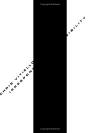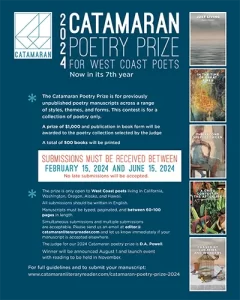Irresponsibility
Here is an austere and well-made collection which brings to mind a spitfire of phrases, like “German ingenuity” and “high modernism” and the “plasir” of the “illisable texte.” The book shifts its glasses and a-hems a bit before engaging me in a conversation which is charmingly incomprehensible. And despite its attempts to be cordial and funny and warm (okay, maybe not quite warm), I can't quite shake that feeling I used to have when I met my physicist boyfriend for beers after work and he'd start talking about trapping ions with lasers: it was sexy as hell but my eyes glazed over almost immediately – not because it was boring, but because I wasn't smart enough. I admit it: this book raises the presumed-dead spectre of my math fear. It feels clean and masculine and well-groomed and logical and intimidating in a way that made me put off writing this review for months. This isn't easy-going for me, but then, I don't think it's supposed to be.
Here is an austere and well-made collection which brings to mind a spitfire of phrases, like “German ingenuity” and “high modernism” and the “plasir” of the “illisable texte.” The book shifts its glasses and a-hems a bit before engaging me in a conversation which is charmingly incomprehensible. And despite its attempts to be cordial and funny and warm (okay, maybe not quite warm), I can't quite shake that feeling I used to have when I met my physicist boyfriend for beers after work and he'd start talking about trapping ions with lasers: it was sexy as hell but my eyes glazed over almost immediately – not because it was boring, but because I wasn't smart enough. I admit it: this book raises the presumed-dead spectre of my math fear. It feels clean and masculine and well-groomed and logical and intimidating in a way that made me put off writing this review for months. This isn't easy-going for me, but then, I don't think it's supposed to be.
After all, the book is called Irresponsibility, an apt title for a book that both excuses and interrupts any sense of “real world experience” via the speaker's overactive intellect. Thus, we can only piece together torn fragments of the underlying narrative via the intentional (or unintentional?) cracks in the narrator's habitual intellectualizing. On the occasions that we do catch a rare glimpse into the book's raison d'etre, the revelation startles and touches a nerve: "Write what the idea is / Iris sings in the bathtub: 'You did nothing wrong.'"
The pleasure is intense and isolated, like catching a glimpse of Victorian ankle beneath obfuscating swaths of material, for there is rarely more than a single image allotted per poem. In this sense, Vitiello's cerebral acrobatics – sentence diagrams, a list of the first 1000 prime numbers, obscure references to Bartok and Barthes, poems in the form of proofs, arrows, self-conscious dissections/corrections of diction, discursive digressions into the text's inherent “thingness” – seem less of an indulgence and more of intentional display of distraction that helps to temper what might otherwise feel too raw, nostalgic and/or sentimental:
The road twisted and the map didn't / / This writing happens
is a thing
Closing your eyes is
lying to yourself about fooling yourself / / My and myself
A series is a defense not a concealment
This is only one of the many embedded instructions Vitiello provides to help us navigate Irresponsibility. Indeed, one senses that the speaker – at times GPS-like in his didactic relationship with the reader – is trying to find his way back to a place/time by obsessively piecing together the fragments of a torn-up map. And the reader, in the passenger's seat, is not only witness to the puzzle, but complicit in solving it as Vitiello issues forth his series of fourth-wall-breaking requests: “Write your name above this line,” “Take only one photograph,” “Cut this,” “Tape your hair clipping below,” Draw a rectangle around the word “hinge.”
Each fragment of the map – or section of the book – is clearly labeled. We know the when and where (“September 2002/Topsail Island, NC,” “9 May 2004/Baltimore, MD/3 hours,” etc.), but the emotional terrain resists Vitiello's systematic naming:
someone let those row houses be there
Watching the flies led my eyes to the dog feces
Notation stops me
This is not an economy until I say that it isn't
These last lines are indicative of the speaker’s perpetual power-struggle: the push-pull between his abstract lack of agency and his professed sovereignty over information. Similarly, the juxtaposition of confident, conceptual information – “seeing is a perpetual axis // an understood axis” – versus intimate, uncertain address: “Brent, I have to break out of this and / not just to do something new.” These are rare, heartbreaking moments that seem to well up from the holes made by the pushpins of Vitiello’s taxonomy: I was here, I was here, this is fact, this is fact.
“A 180° angle is not an angle,” “Living the differentiation makes the difference ± The increments / Initial burnt-out N // Redundancy,” “Enjambment and stanza breaks have atemporal durations.” Here are examples (all from the same poem) of the difficult litanies from which Vitiello’s rare moments of vulnerability, humanity and humor ultimately relieve us, tumbling out onto the page before the speaker can check the impulse:
and the sentences are dull
or all the same length or awkward I’m
not going to do anything about them anyway
Sometimes these moments are, in effect, delightfully reminiscent of James Wright’s famous end-line, “I have wasted my life”: “The ocean was matter-of-fact” or “I know what I’m doing.”
There’s little doubt that the speaker knows what he’s doing, but readers may grow weary of his overindulgent photo-matting, or his near inability to be frank with us, or the at-times claustrophobic feel of his thought-patterns trapped in endlessly self-referential loops. Still, we end up rooting for him. What at first feels cool and impervious in Vitiello’s work eventually reveals itself to be quite generous and playful. What’s lacking in traditional narration is made up for in invitation and participation. Where there’s a dearth of image, there’s an abundance of fizzy diction & rhetorical force. Irresponsibility may recklessly defy readers’ expectations, but it’s that defiance that opens up the space for a new way of telling.





